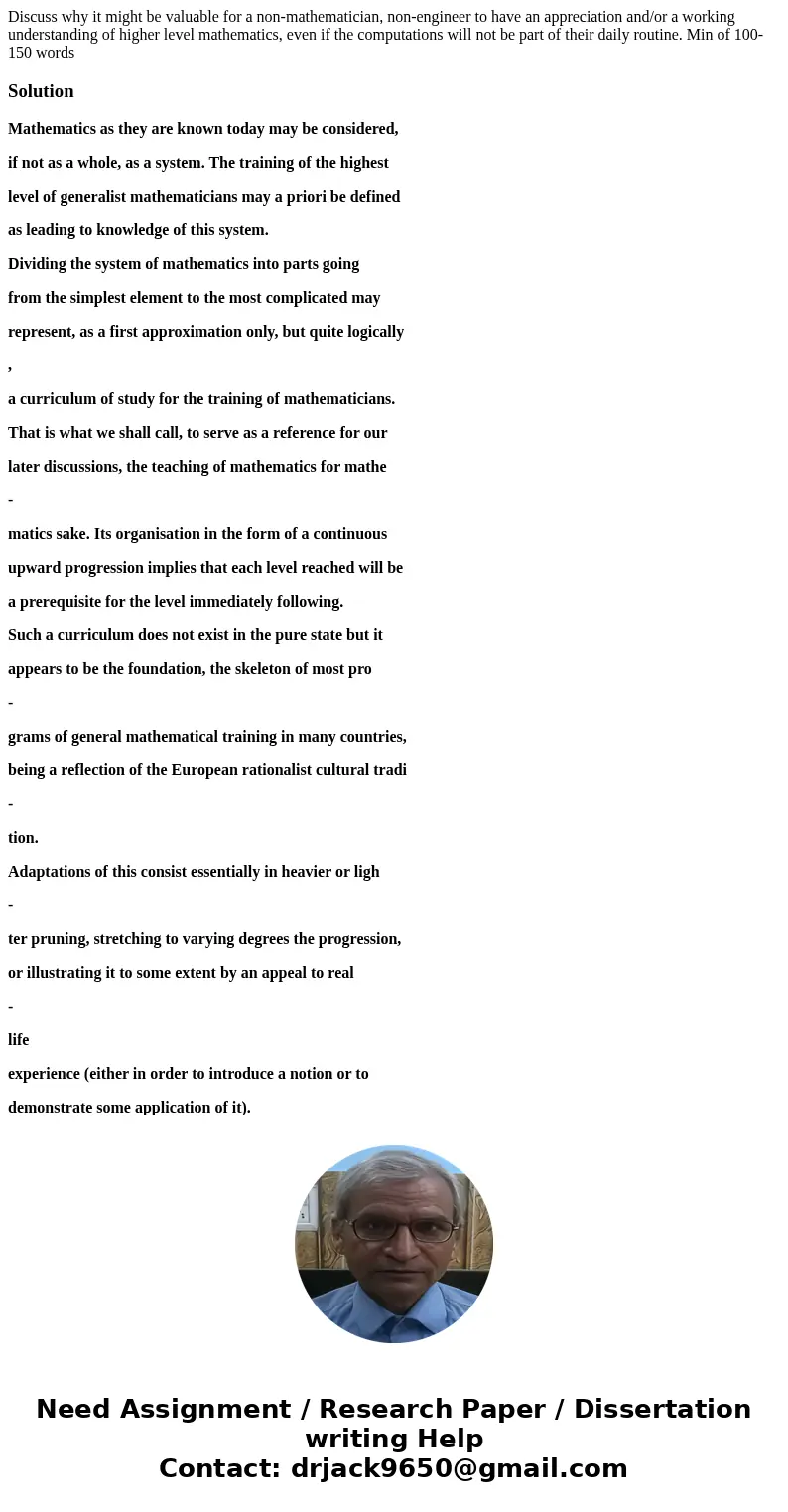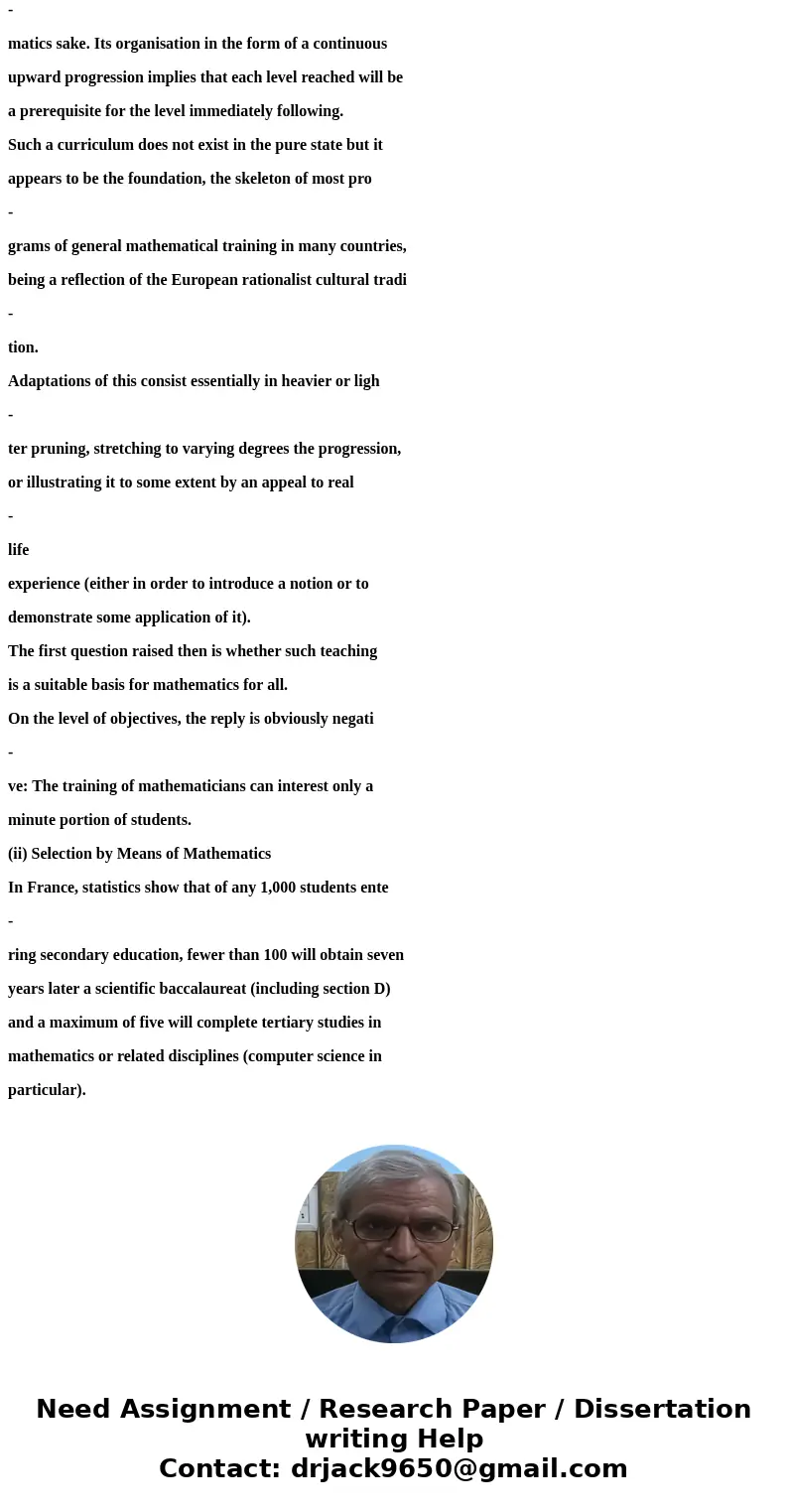Discuss why it might be valuable for a nonmathematician none
Discuss why it might be valuable for a non-mathematician, non-engineer to have an appreciation and/or a working understanding of higher level mathematics, even if the computations will not be part of their daily routine. Min of 100-150 words
Solution
Mathematics as they are known today may be considered,
if not as a whole, as a system. The training of the highest
level of generalist mathematicians may a priori be defined
as leading to knowledge of this system.
Dividing the system of mathematics into parts going
from the simplest element to the most complicated may
represent, as a first approximation only, but quite logically
,
a curriculum of study for the training of mathematicians.
That is what we shall call, to serve as a reference for our
later discussions, the teaching of mathematics for mathe
-
matics sake. Its organisation in the form of a continuous
upward progression implies that each level reached will be
a prerequisite for the level immediately following.
Such a curriculum does not exist in the pure state but it
appears to be the foundation, the skeleton of most pro
-
grams of general mathematical training in many countries,
being a reflection of the European rationalist cultural tradi
-
tion.
Adaptations of this consist essentially in heavier or ligh
-
ter pruning, stretching to varying degrees the progression,
or illustrating it to some extent by an appeal to real
-
life
experience (either in order to introduce a notion or to
demonstrate some application of it).
The first question raised then is whether such teaching
is a suitable basis for mathematics for all.
On the level of objectives, the reply is obviously negati
-
ve: The training of mathematicians can interest only a
minute portion of students.
(ii) Selection by Means of Mathematics
In France, statistics show that of any 1,000 students ente
-
ring secondary education, fewer than 100 will obtain seven
years later a scientific baccalaureat (including section D)
and a maximum of five will complete tertiary studies in
mathematics or related disciplines (computer science in
particular).


 Homework Sourse
Homework Sourse